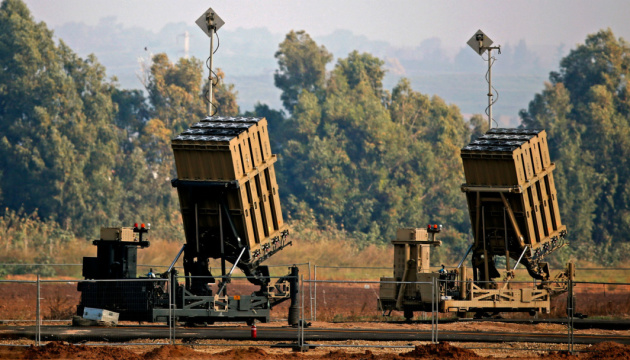
Iran's Attack on Israel: Four Important Lessons for Ukraine and World
Of course, the consequences of Iran's attack are not as significant as they could have been. Virtually no damage was done to either Israel's military or civilian infrastructure. An almost absolute result: 99% of air targets (over 300 missiles and drones) were destroyed, and not even over Israel. We know what the secret is: Israel's three-tiered air defense system, as well as assistance from its allies-the United States, Britain, France, and Jordan-whose aircraft and permits helped repel the attack.
In any case, this could be considered an official declaration of war. But the leaders of the United States and Europe (as well as the countries of the region) are actively trying to dissuade Israel from retaliating against Iran. How convincing their arguments will be, and whether Tel Aviv will listen to them, remains to be seen. However, the first lessons of what happened are already clearly visible.
IMPORTANT LESSONS FOR UKRAINE AND THE WORLD
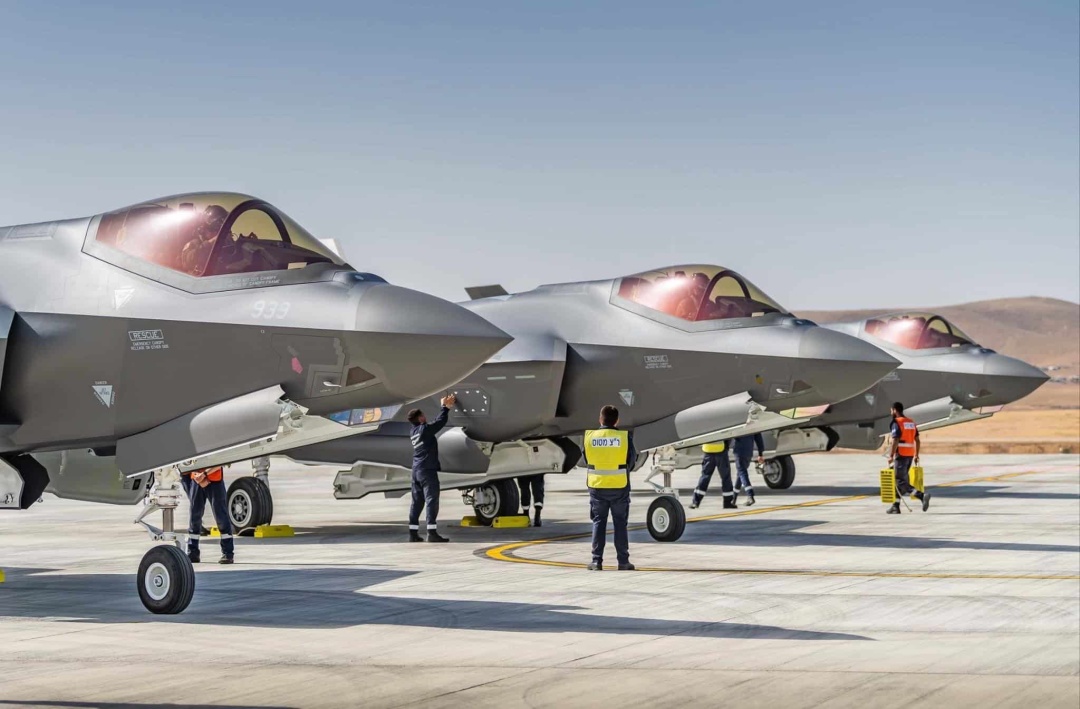
Lesson 1. Aviation has proven its high efficiency
In a commentary to Ukrinform, Israeli Defense Forces officer and military analyst Yigal Levin emphasized that aviation played an extremely important role, if not a key one, in countering the Iranian air threat. Kamikaze drones and cruise missiles are aerodynamic targets, meaning they can easily be shot down by fighter jets.
"It is very important for Ukraine to get American F-16s, French Mirage-200s... These are not just airplanes in the classical sense that can strike targets on the ground. This is a platform that can carry various weapons, such as air-to-air missiles. And it can shoot down SAMs, the same drones or Kalibr, X-55, X-101 cruise missiles, etc. Yes, the Ukrainian Air Force has the practice of shooting down Shaheds using fighter jets, such as MiG-29s. But you need to understand that, of course, the quality of this equipment, avionics, and quantity play a significant role. After all, it is one thing to have 20 outdated Soviet fighters in service, and quite another to have 50 F-16s or other modern Western aircraft," the military expert points out.
Therefore, the only lesson for Ukraine is that it needs to build up its fighter aviation, in particular to protect itself from such threats.
"Ukraine needs aviation as an additional means of air defense," emphasized Mr. Levin.
Valeriy Romanenko, an aviation expert, made a similar point. According to him, when it comes to cruise missiles, since ballistic missiles cannot be shot down from an airplane, a fighter jet is the most effective means of destruction. For him, a non-maneuverable object flying at a constant speed is just "candy."
"The cruising speed of a cruise missile is about 700-750 km, while the F-16 can accelerate to 1500 km. It's easy to aim, and it shoots expensive cruise missiles like a cannon, with cheap short-range air-to-air missiles, such as the American AIM-9 Sidewinder missile. Thus, a fighter jet is the most effective and cost-effective weapon against cruise missiles," Mr. Romanenko emphasized.
However, he continues, Ukraine needs not only aircraft. Israel's air defense forces are well prepared to repel air attacks - they are trained and have enough missiles to shoot down. Our capabilities are much lower due to the delay in military aid from the United States, as well as limited support from other partners. But there is a solution.
"We are asking for additional Patriots. This is good, but I want to remind you of the "hybrid" air defense systems that Ukraine and the United States have created as part of the FrankenSAM program, which will allow us to launch modern Western-caliber anti-aircraft missiles from modernized Soviet launchers. For example, one version of the "hybrid" air defense system combines Buk launchers and Sea Sparrow missiles, while the other one uses Soviet radars and AIM-9M Sidewinder missiles."
The aviation expert emphasizes that we have a lot of launchers left, but not enough missiles for them.
"After the number of cruise missiles and drones launched at us and shot down, there are almost no such missiles left. We can't ask anyone else for them either, because what potential partners had, they have already given them to us. So, we need to actively continue working on FrankenSAM. There are still a lot of AIM-9M Sidewinde, Sparrow, MIM-23 HAWK missiles in the West," said Valeriy Romanenko.
Finally, another important nuance for us is from Iran, whose drones have covered a distance of more than 1,000 kilometers to attack Israel.
"Of course, many of them were shot down on approach, but that's not the point. Ukraine needs to further develop its long-range drone program. We have had some successes, such as the Lutyi UAV, but this work needs to be scaled up... The first drones are designed to continue destroying defense enterprises, aircraft, etc. on the territory of the Russian Federation. The second ones are tactical drones for the frontline to destroy various equipment, as the Russians are doing today," the aviation expert emphasized.
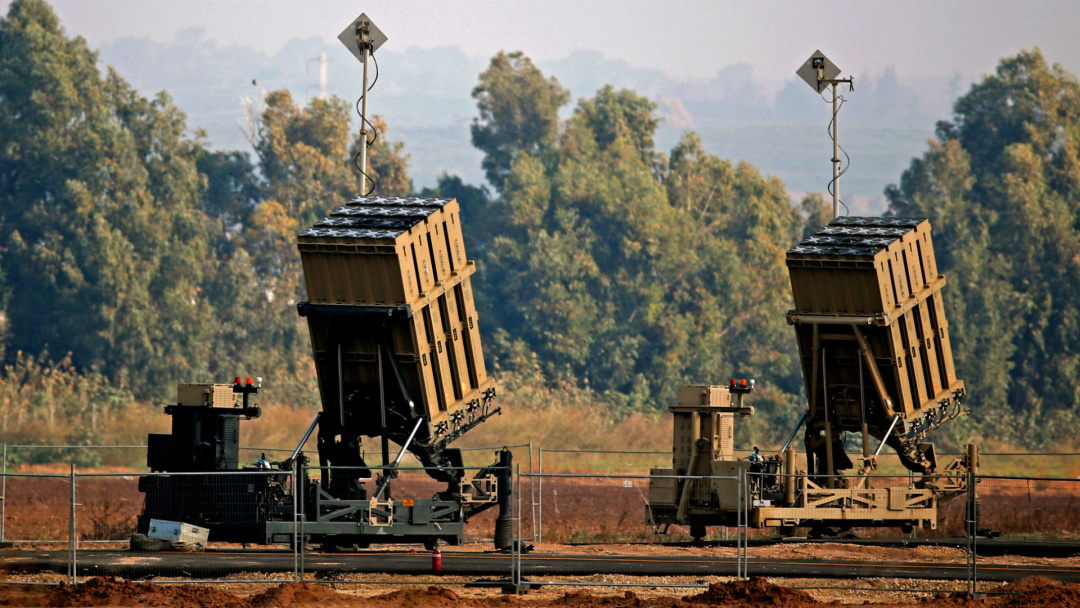
Lesson #2. Israel is being helped because it has been helping itself for a long time and systematically
Political scientist Taras Zahorodnyi reminds us that Israel and its residents have been working hard since the 1950s to ensure that they will be in this situation in 2024: "We had to survive the card system, hard work in kibbutzim, because almost all free resources were spent on our own defense..."
As a result, as of 1973, a country the size of the Kyiv region and with a population of 3 million was already producing its own airplanes, tanks, and much more.
Israel has been working systematically to be useful to the US military-industrial complex. Now there is great interdependence there. Therefore, it is more profitable for the United States to support Israel, despite leftist sentiments.
"Israel is being helped because it helps itself. For a long time and systematically. And investments are made in Israel primarily because it can protect these investments. By the way, the first large investments went to Israel only after the war in 1973, after the Yom Kippur War, when it proved that it could guarantee them. "Therefore, only our own military-industrial complex, only our own weapons can provide such support from the allies," assures Mr. Zahorodnyi. "To do this, we need to cut unnecessary expenses, limit unnecessary imports so as not to export currency abroad (for example, importing luxury cars into the country, etc.), cut a lot of bureaucratic waste, tax the 'bankers' who do not want to finance the military-industrial complex, the 'barons' who only export raw materials abroad and do not develop industry. All the resources collected should be used to expand the state order for the private military-industrial complex. Then everyone will help us. Because the strong always get help."
Diplomat Vadym Triukhan insists on the same point: "Israel has shown the unthinkable for Ukraine by shooting down 99% of air targets. This is just fantastic. Of course, this did not happen without the support of our allies. But it was largely thanks to Israeli air defense systems of its own production. And this is an important lesson for us: we should take our own defense industry more seriously and constantly invest in it. We definitely have the scientific brains. And if we have sufficient funding...".

Lesson #3. We must learn from Israel about political communications and how to lobby for our own interests in the world
Political scientist Serhiy Taran was the first to mention the Israeli lobby in Western democracies, particularly in the United States.
"People in Ukraine often like to talk about this. But not everyone wants to understand that the policies toward their citizens abroad in Israel and Ukraine are radically different. For Israel, its citizens or entire communities that are outside the country during a constant war are potential lobbyists with whom it needs to work. In Ukraine, the opposition between those who are in the country and those who have left is becoming a fashionable but meaningless trend for the country's defense," the expert says.
Another lesson is the restrictions on political communications during the war. The US does not communicate with Ukraine the way the US communicates with Israel.
"Promoting your country's interests in the United States requires the constant presence in Washington of a variety of politicians and experts who communicate with American congressmen, directly reach out to the American media and the voters' clubs of individual members of parliament, so that their voters are not too lazy to call their MP and ask whether he or she voted for the bill your country needs. Such work is the norm for many countries experienced in relations with the United States."
Currently, Ukraine has problems with this. But our country should take this lesson into account. After all, Mr. Taran says, the recipes for effective cooperation with American politicians have long been known: "We just need to have the will not to be afraid to apply them. And then NATO aircraft will be closer to shooting down Russian Shaheds over Ukraine."
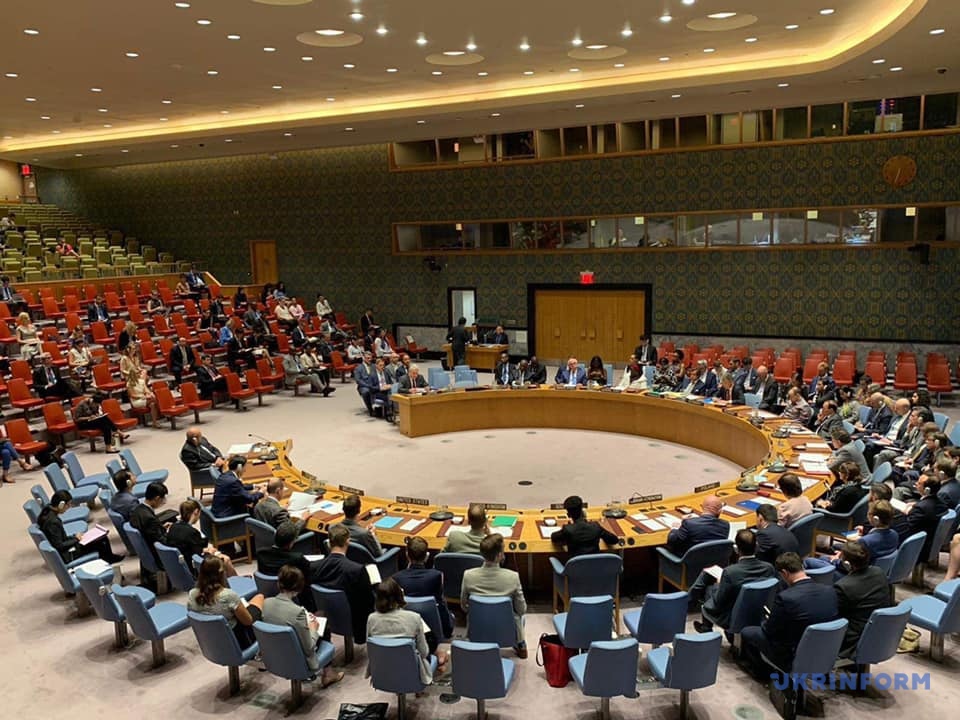
Lesson 4. Diplomacy has lost, sanctions are not working, the UN should be reformed
"The key lesson for the world is that diplomacy has lost again. Despite Joe Biden's calls, which are completely inappropriate, it is hardly possible to let such a strike go unanswered. Israel will respond. And then Iran will respond again. And so it will go on in a circle. The world has completed the postwar phase, the world has entered World War III. Therefore, everyone, including representatives of the Global South, must finally decide which side they are on: evil or good," Vadym Triukhan emphasizes.
Hence, another key lesson for the world, which has already been discussed many times, but the expert once again mentioned it: it is necessary to restart at least the UN Security Council, and at most the entire UN.
"From a tool for preventing wars, as it was originally conceived after the end of World War II, the UN has now turned into a completely dysfunctional platform for chatter and the exchange of some sarcastic statements," Mr. Triukhan emphasizes.
And this is one of the reasons why diplomacy does not really work.
"Diplomacy has no coercive tool. War, tanks, soldiers, total economic isolation of criminal countries - that's what really starts to matter," the expert added.
While the administration of U.S. President Joe Biden and European leaders repeat like a mantra the dictum that war with Russia is unacceptable, delaying the introduction of truly comprehensive sanctions against Russia and Iran, the Kremlin is working tirelessly, non-stop, to implement several tasks
- to destroy the unity of the democratic world;
- to multiply the production of ammunition;
- formation of "friendly" political regimes around the world, including among the EU and NATO member states;
- changing public sentiment around the world in its favor.
"The world is now reaping the benefits of its short-sighted and cowardly policy towards aggressors. Sanctions do not work, and no real coercive tools have been applied. I hope that the next attack on Israel will be a lesson, pushing the West to take more decisive action against the "axis of evil" that Russia, Iran, Syria and North Korea have already constructed and from which China is already half a step away," the diplomat emphasized.
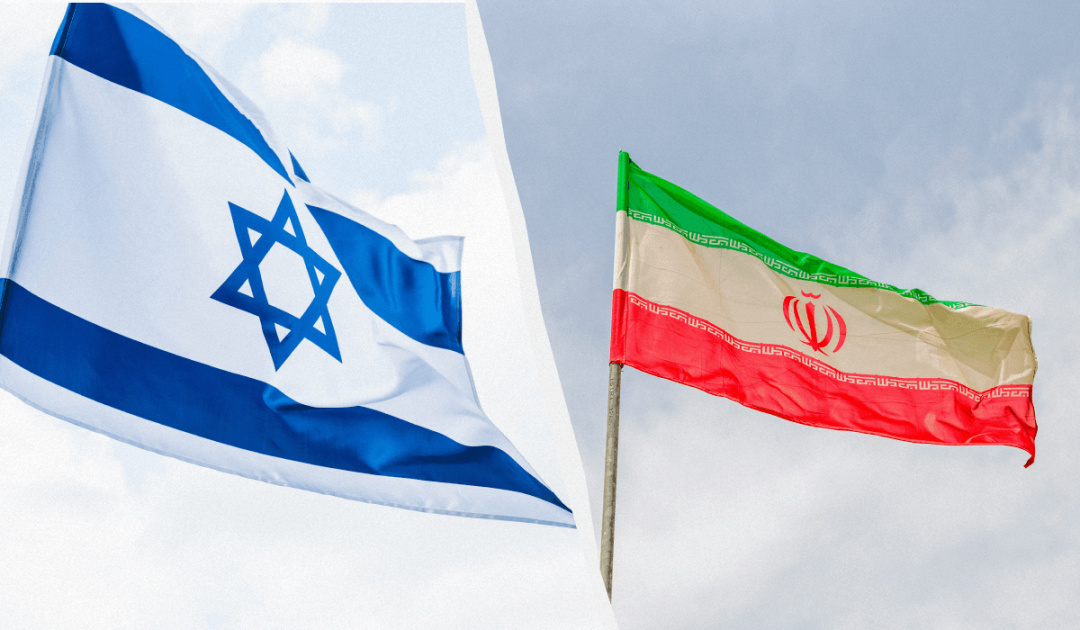
THE CONSEQUENCE: WHAT THE DIRECT IRANIAN-ISRAELI CONFLICT HAS SHOWN
According to political scientist Oleh Posternak, this situation has revealed one significant detail: in global geopolitics, there is a noticeable search for boundaries that would prevent the transformation of contradictions into a global war.
"Each side calculates the behavior of the other and conducts a controlled confrontation, when military activities are quite predictable and understandable. Therefore, this conflict is very similar to a controlled game, a "contractual match" in which the United States is making sure that it does not escalate into a global war, restraining Israel from a disproportionate response, and involving European and Arab allies.
"Iran, on the other hand, is acting cautiously, realizing that the West is actually "allowing" it to react in a certain way, but in such a way that the "red line" is not crossed and the population and military infrastructure of Israel are not directly harmed," the political scientist added.
However, the conflict differs from previous ones, in which Iran acted indirectly through proxy groups such as Hezbollah, Hamas, and the Yemeni Houthis. In this case, Iran directly fired on Israel, which accelerated the dismantling of the previous model of conflict "coexistence" of the warring forces in the Middle East and made it completely new.
"At the same time, the United States and its allies, out of tactical caution, are actually agreeing to a new geopolitical reality, which can be perceived by Iran, China, Russia and North Korea as another fact of the West's weakening on a global scale. This raises many questions about the vague prospect of easing tensions in the region, as Israel is actually a nuclear power and Iran is a few steps away from obtaining nuclear weapons," emphasizes Oleh Posternak.

POSITIVE CONCLUSIONS AND FORECASTS FOR UKRAINE
The situation with the shelling of Israel may not end badly - it may push the US House of Representatives to vote for the long-suffering aid package for Ukraine, as there is now room for compromise. After all, there used to be congressmen in the House who wanted to vote for the Ukraine package but had doubts about the Israel package, and vice versa, who were ready to vote for Israel but were still thinking about helping Ukraine. Now there is practically no such barrier. This is one, but not the only conclusion.
"It can be assumed that finally, overseas, the issue of making a decision on assistance to Israel and Ukraine will move forward. It is not for nothing that even on Sunday, which is not very typical for the Biden administration, relevant telephone conversations were held, in particular with Mike Johnson, after which there was cautious optimism that this issue would be resolved in the coming days. And according to Senate Majority Leader Chuck Schumer, a consensus was allegedly reached on this issue," says Vadym Triukhan.
"Israel is a de jure major ally of the United States among non-NATO countries. Israel was one of the first countries to receive this status. Now about 18 countries have this status. However, Washington has never had such close, multifaceted, and trusting relations with anyone as it has with Tel Aviv. Therefore, I do not think that they will dare to pass a bill that would grant Israel a loan. Most likely, it will be a question of non-repayable aid. And from this perspective, the question of Ukraine arises: if the usual scheme is voted for Israel, it will be very difficult to explain to the public why our country is receiving aid on credit. So, in my opinion, there are greater chances that a non-repayable aid scheme will be voted for both Israel and Ukraine. And, accordingly, for Taiwan," the diplomat believes.
Although, there may still be options. And the reason for this is Trump.
"In fact, over the past six months, Trump has been demonstrating that there is no president in the White House, that he is the master of the situation. That is, whatever position he takes is implemented by Congress. That's what the Republican majority in the lower house means, and that's what the presence of a "golden share" in the form of a small group of Trumpist congressmen means. Therefore, it is worth preparing for this option: perhaps some part of the aid for Ukraine will be "repayable, such as macro-financial assistance," Vadym Triukhan points out.
In general... He is confident that this issue will be resolved in the coming days.
"No one in modern American history could become president if they did not support Israel. Therefore, Trump, who has driven the situation into a dead end, is now on the ropes, and he will have to make some painful decision for himself," the expert emphasized.
And this is Oleh Posternak: "In the United States, the warring parties will traditionally try to use the Iranian-Israeli conflict for the purposes of favorable electoral positioning. However, there is a high risk that the White House's behavior during the conflict will be perceived as a sign of weakness and a reduction in American influence. Therefore, in the context of such political turmoil, a joint aid package for Ukraine, Israel, and Taiwan could be an adequate and acceptable response of US government institutions to the challenge to American influence. Although it should be understood that part of the Trumpist electorate is under isolationist illusions."
Therefore, the political scientist also believes that Trump will want to save face by explaining why the Republicans voted to help Ukraine: "If part of the Ukrainian aid is converted into a loan or reduced, it may look like a compromise for the Republicans and their voters, which is less favorable for Ukraine, but will be at least something in the face of risky delays and lost time."
Another important conclusion for Ukraine after the attack on Israel is that Iran will definitely not sell its ballistic missiles to Russia, at least for some time. And in general, Tehran's support for Moscow in the war against our country will decline, because it will have no time for that.
"Military-technical cooperation between Iran and Russia in the event of a protracted remote war could be significantly reduced. Iran will need a constant resource for terrorizing Israel. And the most popular and cheapest means of all are kamikaze drones. As the Shahed raid and the missile strike on the night of April 14 showed, the number of weapons used was insufficient to break through Israel's air defense, and therefore the potential for a strike, not to mention the tactics, must be different. Iran simply cannot avoid responding to Israeli strikes, and Israel to Iranian ones, and the Islamic Republic will focus its military-industrial complex on these needs. Of course, this will reduce or even minimize the supply of kamikaze drones to Russia, which, in turn, will reduce the intensity and scale of attacks on Ukraine," said Oleksandr Kovalenko, a military observer at the Information Resistance group.
However, there is a flip side to this...
"As for Iranian ballistic missiles, which, according to Western media, have not demonstrated their best performance, we should focus on Russia's ballistic missiles, which it is modernizing and improving. And Russia will also take into account the unsuccessful experience of Iranian missiles to further improve its weapons. Therefore, it is fundamentally and extremely important for Russia to cut off the import of Western components," Oleh Posternak summarized.
Myroslav Liskovych. Kyiv




